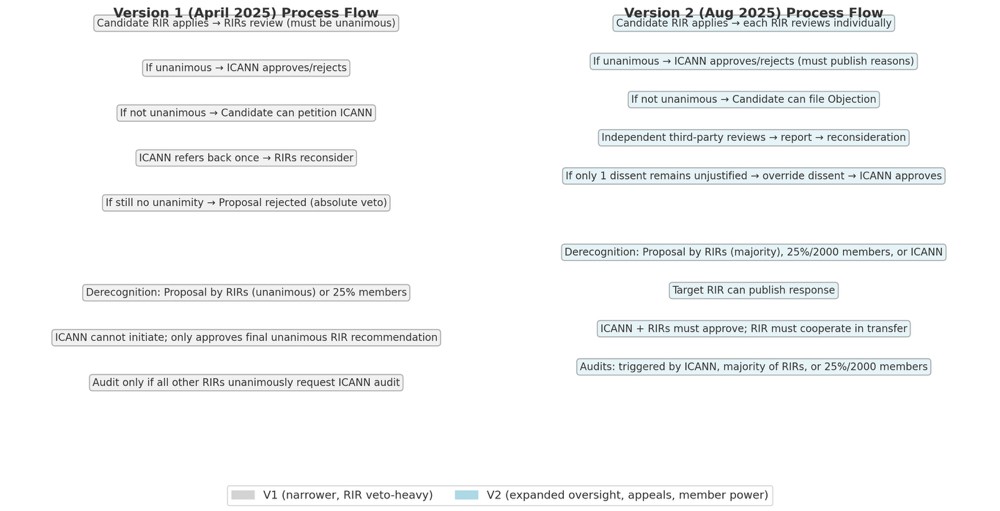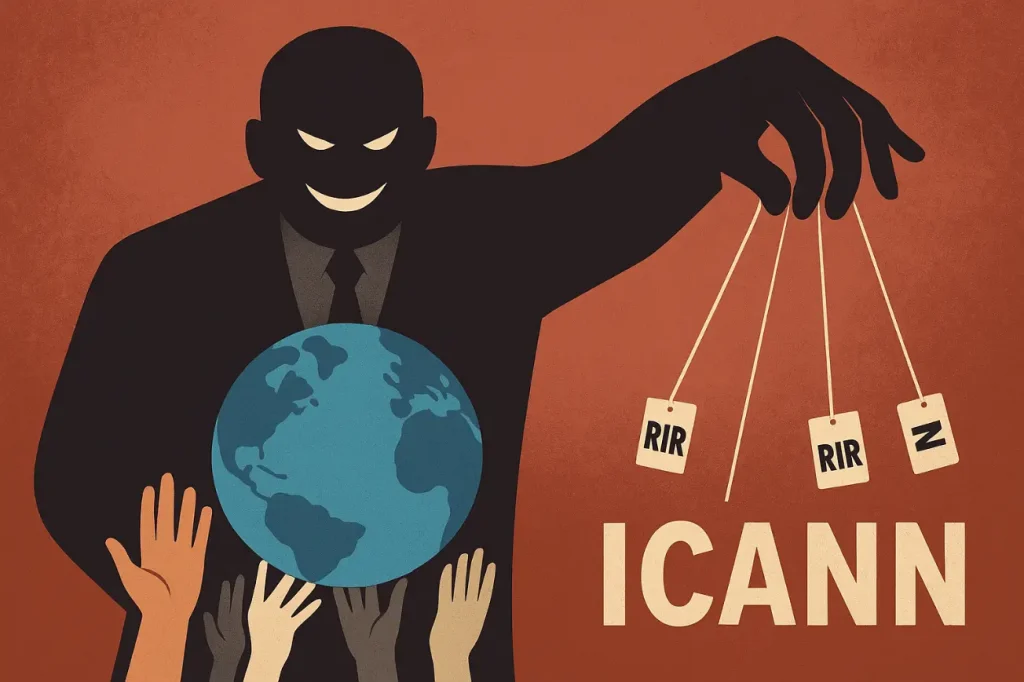- The NRO’s new governance draft greatly expands ICANN’s authority over RIR recognition, audits, and derecognition.
- ICANN’s growing power under CEO Kurtis Lindqvist undermines the Internet’s bottom-up, community-led governance model, shifting decision-making into centralized, top-down control.
The Number Resource Organization (NRO) has just opened a consultation on the second draft of its proposed “Governance Document for the Recognition, Operation, and Derecognition of Regional Internet Registries”, aimed at updating the longstanding Internet Coordination Policy-2 (ICP-2). On its face, this may look like a routine exercise in fine-tuning policy. But in reality, the changes point to a disturbing trend: ICANN’s CEO Kurtis Lindqvist is steadily centralizing power over the multistakeholder Internet numbering system—all under the guise of community consultation.
Also read: New ICANN CEO Kurtis Lindqvist and his global power grab
From consultation to central control
The NRO explains that this second draft builds on feedback gathered via a questionnaire late in 2024 (Oct–Dec), consultations in early 2025, and an initial public comment period from April to May. The recent version, published on 28 August 2025, invites further feedback through November, with workshops scheduled around mid-November.
But don’t be fooled by the procedural theater. Despite the surface-level participatory process, ICANN’s actual influence—in thrall to a top-down approach—is growing. The new draft empowers ICANN not just to rubber-stamp RIR proposals but to exercise final authority, including the power to derecognize them—even when RIRs themselves initially approve or reject recognition/derecognition proposals.
Also read: How ICANN CEO is undermining Mauritius’ constitutional protections
From narrow RIR veto to sweeping ICANN oversight
The graphic below (comparing April and August 2025 versions of the process flow) starkly illustrates how the process has become increasingly ICANN-centric:
- April 2025 (“Version 1”): RIRs would review candidate applications unanimously. ICANN’s role was limited to either approving or rejecting based on that unanimous recommendation; thereafter, ICANN could refer proposals back—but ultimately the RIR decision stood. And derecognition could only be proposed unanimously by RIRs, or by 25 % of members. Audit mandates required unanimous RIR request. In short: narrow, RIR-centric, with strong veto-based checks.
- August 2025 (“Version 2”): Now, each RIR reviews individually. If not unanimous, the candidate can file objection; an independent third-party review happens, and ICANN can override dissent if only one RIR dissent remains unjustified. Derecognition now may originate from a majority of RIRs, from members, or even ICANN. Audits can be triggered broadly, not just by RIRs. In effect, ICANN has inserted itself into every stage and can override the consensus-based community framework. That’s a seismic power shift. (The image provided powerfully illustrates this drift.)

Also read: ICANN’s lack of transparency: A threat to democracy?
A continuation of ICANN’s unchecked grab
This isn’t an isolated development. In December 2024, ICANN quietly ratified what acted as a de facto preliminary version of this expanded ICP-2—without any community feedback—granting itself the power to derecognize RIRs. A recent commentary put it bluntly: “You cannot just publish a document giving you new powers with zero approvals or review from the community, and say this is now official policy.”
This move is emblematic of ICANN’s creeping consolidation of authority. It effectively overrides the bottom-up, multistakeholder ethos—the decentralised, community-driven decision-making that once defined Internet governance. Instead, we’re seeing a trend toward centralization and hierarchical control—where ICANN becomes the ultimate arbiter, rather than a facilitator.
Also read: ICANN or ICan’t? CEO Lindqvist chooses dictatorship over democracy in AFRINIC
Undermining transparency and community governance
Worryingly, critics in the comment process highlighted this overreach:
- One individual commenter noted that “the role of ICANN [is] improperly specified, yet surprisingly and unusually strong for the RIR system, which traditionally is an independent and self-governing subsystem.”
- Another raised objection to the unanimity requirement: requiring unanimity among RIRs gives any one RIR veto power; changing thresholds like that shifts the balance of power.
Even if ICANN wraps these procedural changes in the language of accountability and governance, the fundamental shift is clear: the locus of authority is moving away from regional, community-governed RIRs and toward ICANN’s centralized decision-making apparatus.
Also read: ICANN accused of promoting control over democracy
Why this matters
The RIR system was built on the principles of regional autonomy, transparency, bottom-up policies and development, and community accountability. In contrast, the ICANN CEO’s expanding powers to derecognise and override other authorities risks sidelining the community. This could dissolve the consensus-based trust of the ecosystem, and destroy democratic, multistakeholder processes.
We are at a crossroads: continue building an inclusive Internet governance ecosystem—or slide into centralized control, where the community’s role becomes ceremonial. ICANN must be held to account—not just through selective consultations, but through meaningful consensus before expanding its scope.
Also read: ICANN CEO adds more murkiness to the AFRINIC mess
Final word
ICANN’s latest manoeuvres, quietly ratifying expanded powers and reshaping the ICP-2 process, signal a deepening centralisation of authority, well beyond what the RIR community has ever sanctioned. The NRO’s current consultation may be framed as collaborative, but unless critics forcefully push back, the multi-stakeholder model itself may become a relic—supplanted by elite-driven, top-down control.
If the Internet’s governance is to remain a bottom-up, decentralized endeavor, it’s time for community representatives and civil society to firmly reject any reform that elevates ICANN’s authority at the expense of local, democratic structures. Otherwise, this “consultation” risks serving as a green light for a future where the Internet is governed less by its users—and more by centralized decree.

